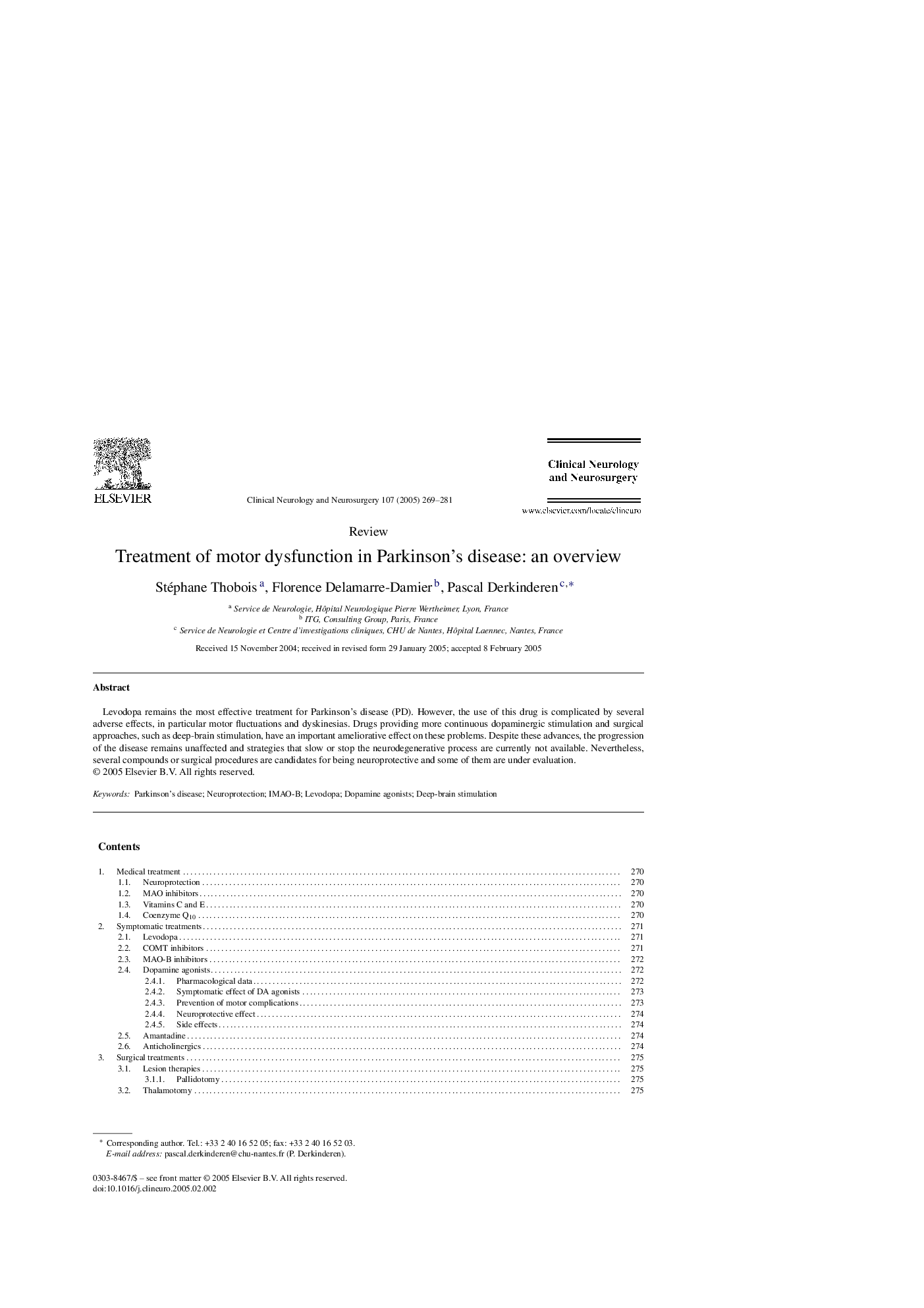| Article ID | Journal | Published Year | Pages | File Type |
|---|---|---|---|---|
| 9188056 | Clinical Neurology and Neurosurgery | 2005 | 13 Pages |
Abstract
Levodopa remains the most effective treatment for Parkinson's disease (PD). However, the use of this drug is complicated by several adverse effects, in particular motor fluctuations and dyskinesias. Drugs providing more continuous dopaminergic stimulation and surgical approaches, such as deep-brain stimulation, have an important ameliorative effect on these problems. Despite these advances, the progression of the disease remains unaffected and strategies that slow or stop the neurodegenerative process are currently not available. Nevertheless, several compounds or surgical procedures are candidates for being neuroprotective and some of them are under evaluation.
Related Topics
Life Sciences
Neuroscience
Neurology
Authors
Stéphane Thobois, Florence Delamarre-Damier, Pascal Derkinderen,
